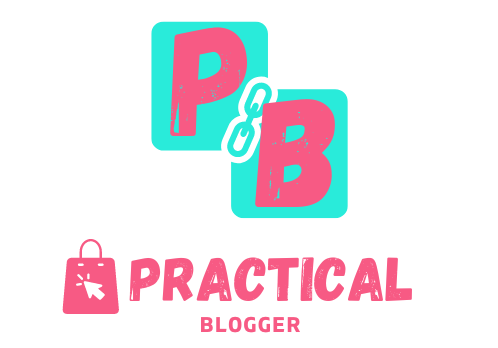Disclaimer: This post may contain affiliate links, meaning we may receive a commission at no extra cost to you if you make a purchase. See our full disclosure here: Affiliate Disclosure.
Discover the hidden world of Black Hat SEO tactics, their risks, and why you should avoid them. Learn how to protect your website and maintain ethical SEO practices for long-term success.
Introduction to Black Hat SEO
In the realm of Search Engine Optimization (SEO), there are two distinct paths you can take: the righteous, white-hat path and the treacherous, black-hat path. While white-hat SEO strategies involve ethical and sustainable practices, black hat SEO tactics tread on the dark side, tempting webmasters with promises of quick results and high rankings.
In this comprehensive guide, we’ll delve deep into the world of black hat SEO, exploring its techniques, risks, and why it’s best to steer clear of these unethical practices.
What Is Black Hat SEO?
Defining Black Hat SEO
Black hat SEO refers to a set of aggressive and unethical tactics used to manipulate search engine rankings and deceive users. Unlike white hat SEO, which prioritizes long-term, sustainable results, black hat SEO is all about shortcuts and quick wins. These techniques often violate search engine guidelines and can lead to severe penalties, including removal from search engine results.
The Temptation of Quick Results
The allure of black hat SEO lies in its promise of rapid results. Businesses and webmasters, eager to see their websites skyrocket to the top of search engine results pages (SERPs), may be tempted by these shortcuts. However, the price for such shortcuts can be exorbitant, potentially resulting in a website’s complete removal from search engine indexes.
Black Hat SEO Techniques
Keyword Stuffing
One of the oldest tricks in the black hat SEO book is keyword stuffing. This involves loading a webpage with excessive keywords or keyword phrases, often making the content unreadable or nonsensical. The intent is to manipulate search engines into ranking the page higher for those keywords.
Cloaking
Cloaking is a deceptive technique where different content is presented to search engines and users. While search engine bots see one version of the webpage optimized for specific keywords, users see entirely different content. This method is used to trick search engines into ranking a page higher for unrelated keywords.
Link Farming
Link farming involves creating a network of interconnected websites or web pages with the sole purpose of linking to one another. The aim is to artificially inflate a site’s backlink profile, tricking search engines into believing the site is authoritative. This technique is a direct violation of search engine guidelines.
Hidden Text and Links
Hidden text and links are elements placed within a webpage’s code but are not visible to users. These elements are stuffed with keywords or used to link to other websites, often those that are entirely unrelated to the content. This technique is aimed at manipulating search engine algorithms without users’ knowledge.
Duplicate Content
Copying content from other websites and publishing it as your own is a black hat SEO technique known as duplicate content. This not only violates copyright laws but can also result in search engine penalties for duplicate content, as search engines strive to provide unique and valuable results to users.
Doorway Pages
Doorway pages are low-quality web pages created to rank for specific keywords and redirect users to another page, often the main website. These pages offer little to no value to users and are designed solely to manipulate search engine rankings.
The Risks of Black Hat SEO
Search Engine Penalties
The most immediate risk of employing black hat SEO techniques is the possibility of incurring search engine penalties. Search engines like Google are continually improving their algorithms to detect and penalize websites that engage in unethical practices. Penalties can range from a drop in rankings to complete removal from search engine results.
Reputational Damage
Black hat SEO can tarnish a website’s reputation and brand image. When users discover that a website is using deceptive tactics, they are likely to lose trust in the brand. Negative reviews and social media backlash can further damage a company’s reputation.
Loss of Organic Traffic
As search engines penalize websites practicing black hat SEO, organic traffic decreases. A sudden drop in rankings means fewer visitors and, subsequently, reduced revenue. In the long run, these consequences can be financially devastating for a business.
Legal Consequences
Some black hat SEO techniques, such as duplicate content and copyright infringement, can lead to legal actions. Plagiarism and intellectual property violations can result in costly lawsuits, fines, or settlements.
Why You Should Avoid Black Hat SEO
Long-Term Sustainability
White hat SEO practices prioritize long-term sustainability. By following ethical guidelines and providing valuable content to users, your website can maintain a strong online presence for years to come. In contrast, black hat SEO tactics may deliver short-term gains but are unlikely to withstand search engine algorithm updates.
Trust and Credibility
Trust and credibility are essential elements of any successful online business. By employing black hat SEO, you risk damaging your brand’s trustworthiness and credibility. Users are less likely to engage with a website they perceive as dishonest or deceptive.
Avoiding Penalties
The risk of search engine penalties, including removal from SERPs, should be a significant deterrent against black hat SEO. Recovering from such penalties can be time-consuming and costly, making it more sensible to avoid unethical tactics from the outset.
Ethical Responsibility
Operating ethically in the online realm is not only a matter of best practice but also a moral obligation. Ethical SEO contributes to a healthier online ecosystem, where websites compete fairly and provide value to users.
Ethical SEO Best Practices
Quality Content
Create high-quality, valuable content that caters to your target audience’s needs and interests. Informative and engaging content is more likely to attract organic traffic and earn backlinks naturally.
Keyword Research
Conduct thorough keyword research to identify relevant keywords for your industry and target audience. Use these keywords strategically in your content, titles, and meta descriptions.
On-Page SEO
Optimize your website’s on-page elements, including meta tags, headings, and image alt attributes. Ensure that your website is technically sound and mobile-friendly.
Link Building
Build a strong and natural backlink profile by earning links from reputable websites. Avoid buying links or participating in link schemes.
User Experience
Enhance the user experience on your website by ensuring fast loading times, easy navigation, and mobile responsiveness. A positive user experience can improve your site’s rankings and encourage repeat visits.
Black Hat SEO: Overview
In the complex world of SEO, it’s crucial to distinguish between ethical, white hat practices and unethical, black hat tactics. While black hat SEO may promise quick wins, the risks far outweigh the benefits. The potential consequences of penalties, reputational damage, and loss of organic traffic should be enough to deter any webmaster or business from venturing into the dark side of SEO.
Instead, focus on ethical SEO best practices that prioritize long-term sustainability, trust, and credibility. By creating high-quality content, conducting thorough keyword research, optimizing your website, and building natural backlinks, you can achieve lasting success in the world of SEO.
Remember, SEO is not a sprint; it’s a marathon. Embrace ethical SEO practices, and your website will thrive in the ever-evolving digital landscape.
Call-to-Action: Take the high road in SEO. Embrace ethical SEO practices and watch your website grow sustainably. If you have questions or need guidance on ethical SEO, reach out to our experts today. Your online success begins with responsible SEO!
Frequently Asked Questions (FAQs) about Black Hat SEO
Here, we address some common questions regarding black hat SEO, its risks, and why ethical SEO practices are crucial for long-term success.
Black hat SEO refers to unethical and aggressive tactics used to manipulate search engine rankings. These tactics violate search engine guidelines and prioritize quick results over sustainable, long-term success.
Common black hat SEO techniques include keyword stuffing, cloaking, link farming, hidden text and links, duplicate content, and doorway pages. These techniques aim to deceive search engines and users.
The risks of black hat SEO include search engine penalties, reputational damage, loss of organic traffic, and legal consequences. Violating search engine guidelines can lead to ranking drops or even removal from search results.
You should avoid black hat SEO because it jeopardizes the long-term sustainability of your website. Ethical SEO practices build trust, credibility, and a strong online presence, while black hat tactics can lead to penalties and damage your brand’s reputation.
White hat SEO involves ethical and sustainable practices, prioritizing user experience and valuable content. In contrast, black hat SEO relies on unethical tactics and shortcuts to manipulate search engine rankings.
To ensure ethical SEO, focus on creating high-quality content, conducting keyword research, optimizing on-page elements, building natural backlinks, and providing a positive user experience. These practices align with search engine guidelines and contribute to long-term success.
No, black hat SEO is never justified. While it may promise quick wins, the risks of penalties, reputational damage, and legal consequences far outweigh any short-term benefits. Ethical SEO is the only sustainable and responsible approach.
Recovering from black hat SEO penalties can be challenging. Start by identifying and removing unethical tactics, then submit a reconsideration request to search engines. Focus on implementing ethical SEO practices to rebuild your website’s trustworthiness.
Using duplicate content in SEO can lead to search engine penalties, as search engines aim to provide unique and valuable results to users. It can also result in copyright infringement claims, leading to legal consequences.
Results with ethical SEO practices may vary, but they typically take time to manifest. Building a strong online presence and improving rankings can take several months or even years, depending on your niche and competition. However, the results are more likely to be sustainable and long-lasting.
Remember, ethical SEO practices not only benefit your website’s performance but also contribute to a healthier online ecosystem. Prioritizing user experience and providing valuable content are essential for long-term success in the digital world.
Ultimate Guide to SEO Link Building: Strategies, Tips, and Best Practices
Mastering Weebly SEO: A Comprehensive Guide to Boost Your Website’s Visibility
From Zero to SEO Hero: Mastering Site Optimization for Explosive Results
200 Best Social Sharing and Bookmarking Sites for SEO and Organic Promotion
The Truth About Buying Backlinks: Risks, Rewards, and Best Practices
Ultimate Guide to Professional SEO Services: Boost Your Online Presence
Ultimate Guide to SEO Keyword Analysis: Unleashing the Power of Effective Keyword Research
Mastering SEO Writing: Ultimate Guide to Effective Content Optimization
Ultimate Guide to Ghost Blogging: Unveiling the Art of Crafting Spectacular Content
Unmasking the Dark Side of SEO: Ultimate Guide to Black Hat SEO
Google Digital Marketing: A Comprehensive Guide for 2023 and Beyond
Mastering Blog Design: Strategies for a Visually Stunning and User-Friendly Website
Mastering SEO Analysis: A Comprehensive Guide to Boost Your Online Visibility
Mastering SEO Content Writing: Strategies, Tips, and Best Practices
Exploring the Culinary World: The 15 Best Food Blogs to Follow
Outsmart, Outrank: Ultimate Guide to Competitor Analysis in SEO
Becoming a Successful SEO Specialist: Skills, Strategies, and Career Path
What Does an SEO Specialist Do? The Complete Guide to SEO for Businesses
You might also like:
- GoHighLevel Snapshots for Sale: A Buyer’s Guide
- How to Create Snapshots in GoHighLevel to Save Time and Streamline Your Workflow
- GoHighLevel Login Tips and Tricks: The Ultimate Guide
- How to Use GoHighLevel to Grow Your Business
- How to Become a GoHighLevel Top Affiliate and Earn Passive Income
- GoHighLevel Pricing Plans: A Comprehensive Guide
- GoHighLevel Support: Get Help 24/7
- Related Reading: Why Start a Blog: Purpose and Benefits
- Related Reading: How Blogging Can Help You Discover Your Passion and Life Purpose
- Related Reading: How to Find Motivation to Start a Blog
- Related Reading: Identifying Personal and Professional Goals for Your Blog

























